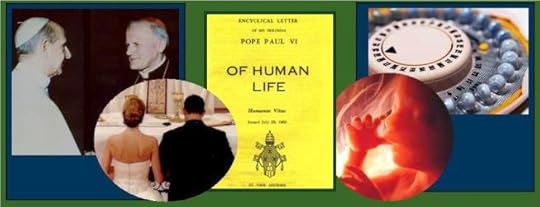Revisiting Humanae Vitae
Revisiting Humanae Vitae | Rob Agnelli | Homiletic & Pastoral Review
What has been summarized as his most profound theological contribution, Theology of the Body, John Paul II labeled the entire work a “rereading of Humanae Vitae.”
Two days after the publication of Humanae Vitae, Pope Paul VI remarked during his Wednesday audience that the encyclical had “clarified a fundamental chapter … in the field of marriage, family and morality.” “Still,” the pope added, “the Magisterium of the Church could and perhaps should return to this immense field with a fuller, more organic and more synthetic treatment.” 1 At the time, this comment must have left an indelible mark on the mind of a Polish cardinal named Karol Wojtyla. Once he became Pope John Paul II, there was no field of theology that he returned to more often than the teachings of Humanae Vitae. In fact, what has been summarized as his most profound theological contribution, Theology of the Body, John Paul II labeled the entire work a “rereading of Humanae Vitae.”2 With the recent controversy surrounding the HHS mandate, it can be highly instructive to reexamine the encyclical in light of the teachings of, not only John Paul II, but the Magisterium as a whole since 1968.
A New Approach
With the advent of the “sexual revolution” and the prevalence of modern rationalism, there was one thing that became readily apparent. The Church could no longer depend on the old pedagogical style of the moral manuals to stem the cultural tide that was pushing for contraception. Although these manuals taught the objective truth, they often came across as legalistic and authoritarian. The Church was viewed as “out of touch” with modern times because the teachings in the classic moral manuals failed to resonate personally with the couples themselves. Because questions of sexual morality are always tied to “the content and quality of the subjective experience” of the couple, 3 the Church had to find a way to speak to couples in this situation.
In many ways, this is what makes Humanae Vitae so groundbreaking for those who have actually read it. The encyclical responds to modern rationalism by framing its moral pronouncement in largely personalist terms.
Continue reading at www.HPRweb.com.
Related articles
 Pope John Paul II and the Christ-centered Anthropology of "Gaudium et Spes"
Pope John Paul II and the Christ-centered Anthropology of "Gaudium et Spes" "Humanae Vitae": 44 years later, it continues to challenge us to love, trust, and sacrifice
"Humanae Vitae": 44 years later, it continues to challenge us to love, trust, and sacrifice "Pope John Paul II, Humanae Vitae, and the Theology of the Body"
"Pope John Paul II, Humanae Vitae, and the Theology of the Body" "This book is a must-have" for arguing against those "who think the sexual revolution a grand thing."
"This book is a must-have" for arguing against those "who think the sexual revolution a grand thing." What is the New Evangelization?
What is the New Evangelization? The Mystery of Creation and the Sacrament of Marriage
The Mystery of Creation and the Sacrament of Marriage
Carl E. Olson's Blog
- Carl E. Olson's profile
- 20 followers




